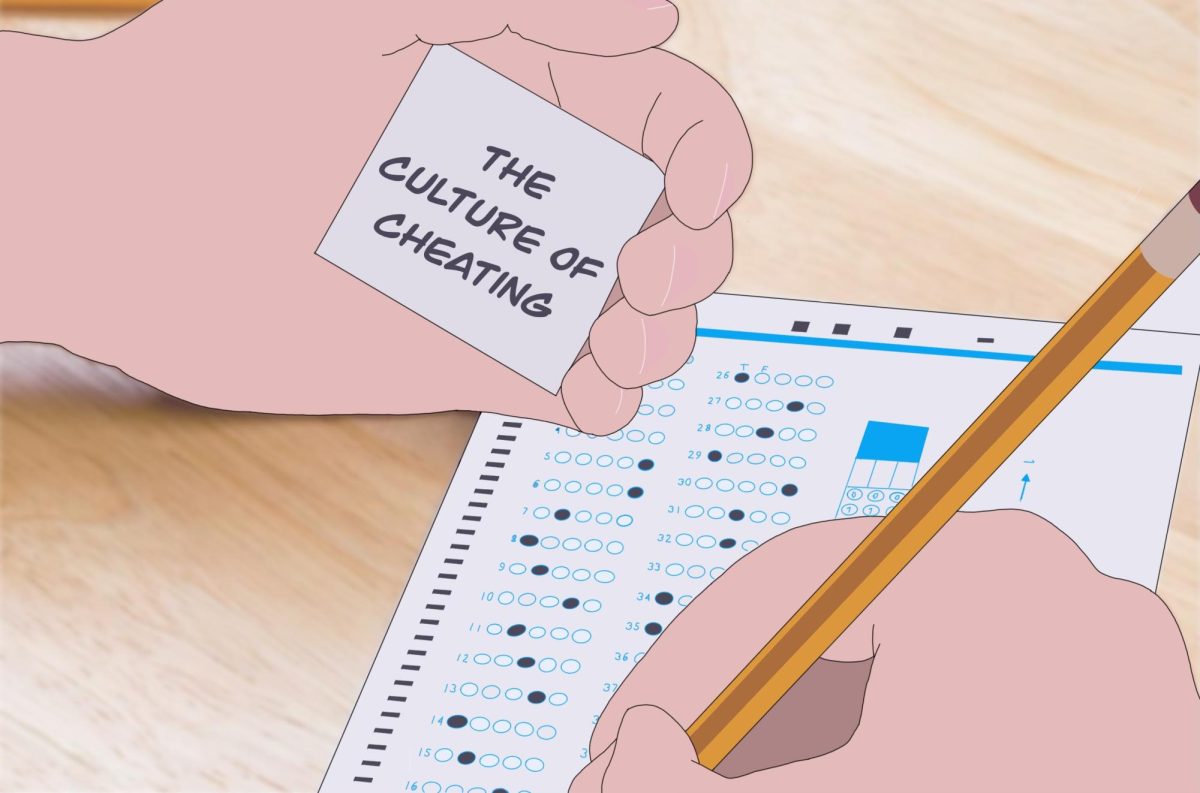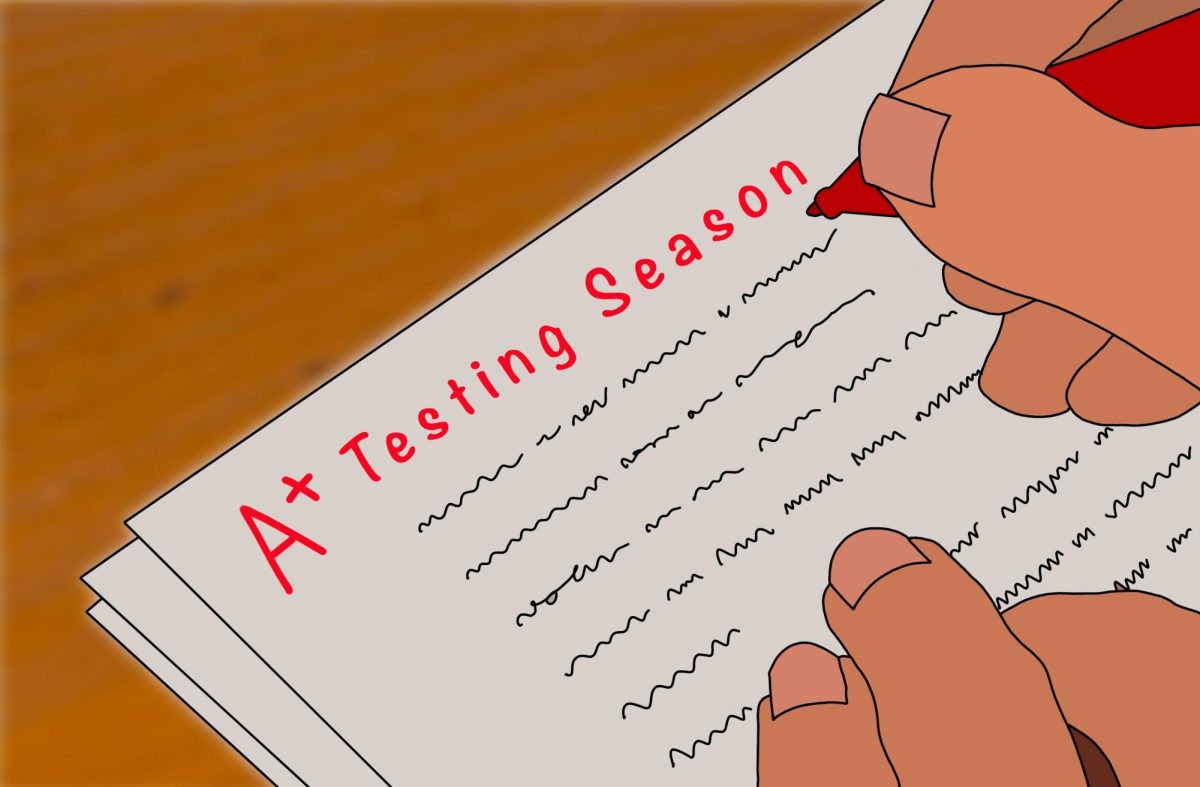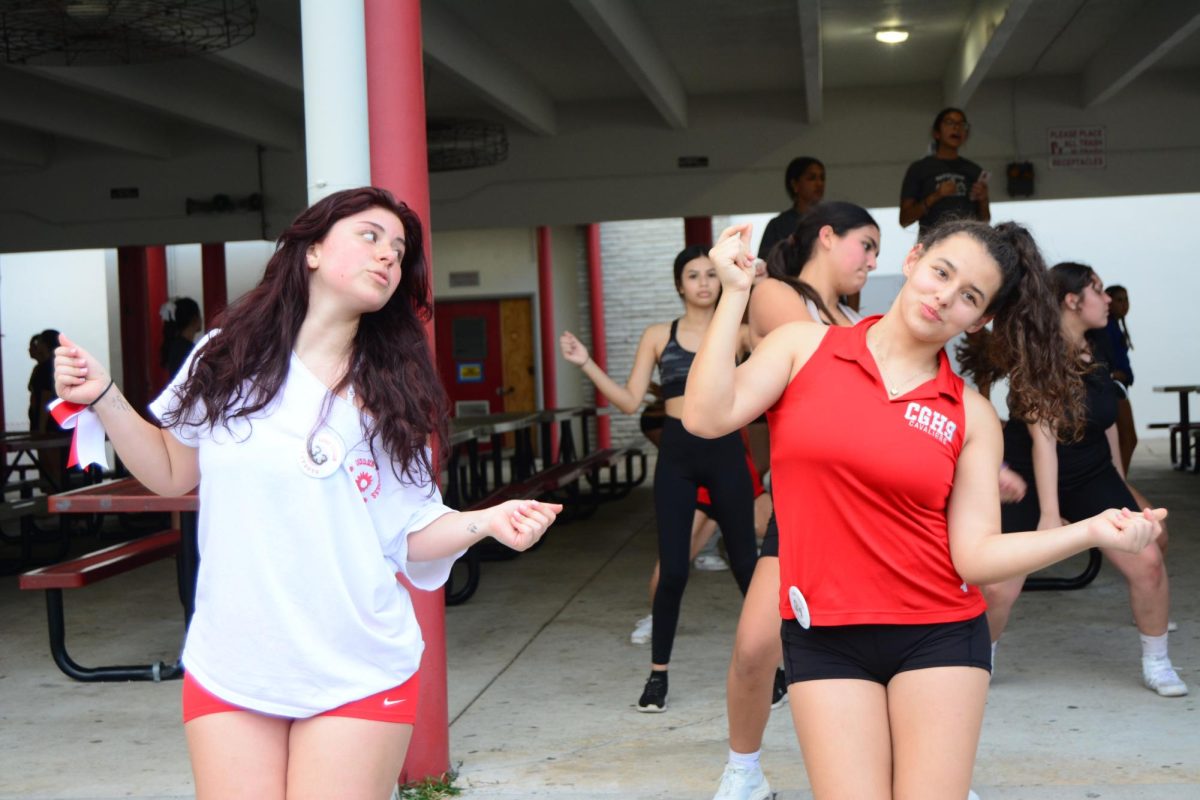Cheating has been a prevalent issue in the education system for years. Many students resort to cheating on homework, tests, projects and other academic work for the sake of better grades. While some students get caught, others manage to avoid punishment by being clever. Cheating is widespread in all levels of education but it brings severe consequences. This begs the question: is cheating ever acceptable, and should teachers show leniency towards students caught cheating?
Academic pressure can sometimes lead students to resort to unethical practices like cheating. The desire to excel and achieve good grades can become so overwhelming that some students feel compelled to take shortcuts. In some cases, the fear of failure can be so intense that students are willing to do almost anything to maintain a high grade on a test or assignment.
“I think it’s pretty difficult to justify cheating, but I think there are valid reasons why a student could be deciding to cheat on their assignments and tests. A frequent reason I hear is that the teacher isn’t providing the students with the knowledge they need to complete these assessments adequately. With the support of our teachers, I’m sure the amount of cheating at our school would decrease,” junior Naomi Galex said.
According to the 2012 Josephson Institute’s Center for Youth Ethics report, 74% of students admitted to copying their friends’ homework assignment answers. This form of cheating does not just put the student who copied in the wrong, but also the person who provided the answers. Indeed, teachers often blame both parties and label them both as perpetrators of cheating.
“When you’re running out of time and need to keep your grades up, it seems like the only option. However, I do not believe in constant cheating. Constant cheating causes you to fall behind in class and that will really bring down your grade,” sophomore Mariana Iglesias said.
When it comes to dealing with academic misconduct, it is important to ensure that the punishments are appropriate to the nature of the offense. For instance, if a student engages in minor academic misconduct such as copying answers for a simple assignment, a bad grade or a warning may be sufficient to discourage the student from repeating the behavior. However, if a student commits more serious offenses such as plagiarism or cheating on a major test or exam, the punishment should be more severe.
“As an IB student, I do not believe cheating should be allowed no matter the circumstances. In IB, if you get caught cheating or using plagiarism, you could get kicked out of the program and I don’t see a problem with that. The IB program is very prestigous and students should not be cheating their way through the year,” junior Caitlin Savage said.
In extreme cases of cheating, indoor suspension or even outdoor suspension may be necessary to show the student the seriousness of the importance of academic integrity. It is particularly important to be alert when it comes to advanced courses such as AP or IB classes, where the standards are higher.
In such cases, cheating can have severe consequences, not only for the individual student but also for the integrity of the entire program. Therefore, teachers and staff must be diligent in enforcing the rules and ensuring that all students understand the importance of academic honesty and integrity. By doing so, schools can promote a culture of accountability and responsibility that will serve students well in their academic lives.
Academic cheating can have detrimental effects on a student’s learning process and academic integrity. It is important to establish clear guidelines and consequences for those who engage in such behavior. Repeat offenses should result in serious consequences. Upholding academic honesty is a crucial aspect of maintaining a fair and unbiased learning environment for each and every student in the classroom.
“Of course, I don’t think anyone should cheat. While it may not seem like it, the knowledge we absorb in school helps us throughout the rest of our lives. Of course, everybody’s circumstances are different, and I can’t definitively condone or condemn the act of cheating. However, I think every student should make an effort to learn the material being taught to them in class, for the benefit of their future,” junior Naomi Galex said.











